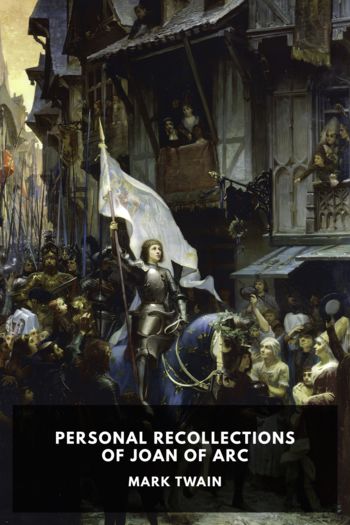A Connecticut Yankee in King Arthur’s Court by Mark Twain (my reading book .TXT) 📕

- Author: Mark Twain
Book online «A Connecticut Yankee in King Arthur’s Court by Mark Twain (my reading book .TXT) 📕». Author Mark Twain
Even down to my birth-century that poison was still in the blood of Christendom, and the best of English commoners was still content to see his inferiors impudently continuing to hold a number of positions, such as lordships and the throne, to which the grotesque laws of his country did not allow him to aspire; in fact, he was not merely contented with this strange condition of things, he was even able to persuade himself that he was proud of it. It seems to show that there isn’t anything you can’t stand, if you are only born and bred to it. Of course that taint, that reverence for rank and title, had been in our American blood, too—I know that; but when I left America it had disappeared—at least to all intents and purposes. The remnant of it was restricted to the dudes and dudesses. When a disease has worked its way down to that level, it may fairly be said to be out of the system.
But to return to my anomalous position in King Arthur’s kingdom. Here I was, a giant among pigmies, a man among children, a master intelligence among intellectual moles: by all rational measurement the one and only actually great man in that whole British world; and yet there and then, just as in the remote England of my birth-time, the sheep-witted earl who could claim long descent from a king’s leman, acquired at secondhand from the slums of London, was a better man than I was. Such a personage was fawned upon in Arthur’s realm and reverently looked up to by everybody, even though his dispositions were as mean as his intelligence, and his morals as base as his lineage. There were times when he could sit down in the king’s presence, but I couldn’t. I could have got a title easily enough, and that would have raised me a large step in everybody’s eyes; even in the king’s, the giver of it. But I didn’t ask for it; and I declined it when it was offered. I couldn’t have enjoyed such a thing with my notions; and it wouldn’t have been fair, anyway, because as far back as I could go, our tribe had always been short of the bar sinister. I couldn’t have felt really and satisfactorily fine and proud and setup over any title except one that should come from the nation itself, the only legitimate source; and such an one I hoped to win; and in the course of years of honest and honorable endeavor, I did win it and did wear it with a high and clean pride. This title fell casually from the lips of a blacksmith, one day, in a village, was caught up as a happy thought and tossed from mouth to mouth with a laugh and an affirmative vote; in ten days it had swept the kingdom, and was become as familiar as the king’s name. I was never known by any other designation afterward, whether in the nation’s talk or in grave debate upon matters of state at the council-board of the sovereign. This title, translated into modern speech, would be the boss. Elected by the nation. That suited me. And it was a pretty high title. There were very few the’s, and I was one of them. If you spoke of the duke, or the earl, or the bishop, how could anybody tell which one you meant? But if you spoke of The King or The Queen or The Boss, it was different.
Well, I liked the king, and as king I respected him—respected the office; at least respected it as much as I was capable of respecting any unearned supremacy; but as men I looked down upon him and his nobles—privately. And he and they liked me, and respected my office; but as an animal, without birth or sham title, they looked down upon me—and were not particularly private about it, either. I didn’t charge for my opinion about them, and they didn’t charge for their opinion about me: the account was square, the books balanced, everybody was satisfied.
IX The TournamentThey were always having grand tournaments there at Camelot; and very stirring and picturesque and ridiculous human bullfights they were, too, but just a little wearisome to the practical mind. However, I was generally on hand—for two reasons: a man must not hold himself aloof from the things





Comments (0)